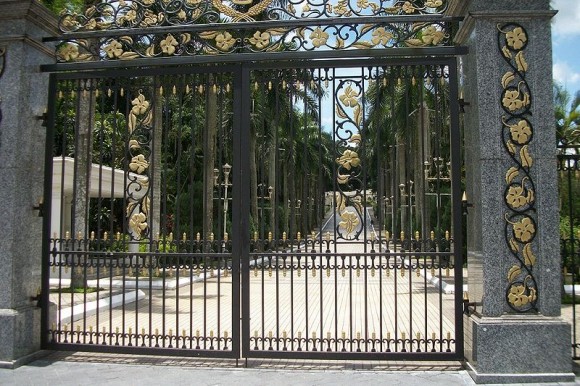
WE know that Senator Ezam Mohd Nor was diverting from the real issue when he commented on the story about foreign workers at the new Istana Negara construction site allegedly not being paid their wages. By some stretch of the imagination, he turned what was really a human rights issue and possible labour law violation into a case of undermining the monarchy. In that light, Ezam may just be joining the bandwagon of fear-mongers in claiming that Malay Malaysian power and institutions are under threat.
Ezam is not worth responding to. His switching of political alliances and his repeated unfulfilled promises of political exposés speak for his credibility.
What is more important than Ezam’s rhetoric is that once again, an authority tasked with protecting people, the Malaysian Human Rights Commission (Suhakam), is disregarded.
Subjected to bureaucracy
On 5 July 2010, two Suhakam commissioners and two officers attempted to check the workers’ living conditions following reports that there were also children living in cramped and dirty conditions at the construction site. But security guards denied Suhakam entry, saying they had to obtain permission from the building contractor.
Commissioner Muhammad Sha’ani Abdullah was quoted as saying that Suhakam had called and written to inform the contractor, Maya Maju Sdn Bhd, of their planned visit. There was no reply, and Suhakam went ahead. As Muhammad Sha’ani also said, Suhakam is “mandated and duty-bound to make sure no human rights abuses are taking place”.
What if Maya Maju were never to respond to Suhakam’s request? What if every other case of alleged or suspected human rights abuse could only be opened to inspection after Suhakam writes, waits and obtains permission? How would the commission be expected to conduct its work?
As if that wasn’t enough, the Works Ministry then told Suhakam to make “an official request” to the Public Works Department. The commission has done this and is still waiting for a response. Given government bureaucracy, when would that response be forthcoming? And in the meantime, what could be happening behind the palace gates?

At the same time, what’s stopping the works minister from quickly facilitating Suhakam’s investigation since the matter falls under the ministry’s jurisdiction?
Suhakam should not be made to go through the hassle of putting in written applications just so it can discharge its duties. The commission does not comprise “ordinary” members of the public, but individuals of high standing entrusted to hold the country accountable on human rights. Even “ordinary” citizens’ complaints about dealing with the civil service are attended to, thanks to government measures such as online services. Why, then, couldn’t the government attend to Suhakam’s request more efficiently? What more when the commissioners are appointed by the government?
Suhakam who?
Suhakam’s powers, by law, mandate it to study and verify infringements of human rights, and to act on its own to inquire into alleged violations. It need not wait for formal reports to be lodged. It needs this freedom to conduct probes independently, and not on the goodwill or permission of others, to fulfill its roles. One of which is to advise, assist and recommend to the government the laws and international treaties, procedures and necessary measures required to uphold fundamental liberties.
 So when both a private (the building contractor) and public (the Works Ministry) entity show disregard for Suhakam by denying it entry to a site where violations are potentially occurring, or by stalling its work with red tape, what kind of message is sent?
So when both a private (the building contractor) and public (the Works Ministry) entity show disregard for Suhakam by denying it entry to a site where violations are potentially occurring, or by stalling its work with red tape, what kind of message is sent?
The message is that Suhakam carries little or no weight. That it lacks authority.
But this isn’t the first time Suhakam isn’t taken seriously. The government regularly reinforces the underlying message that Suhakam needn’t be listened to. It does so whenever Suhakam annual reports are not tabled in Parliament. And when motions to debate these reports are rejected. It does so again when it sidelines Suhakam’s recommendation, since 2003, to repeal the Internal Security Act (ISA), which allows for indefinite detention without trial. The commission wants the ISA replaced with a law that includes trial in open court. But the government is only offering a review of the ISA, drafts of which are kept from the public.
Suhakam has also reported its findings and recommended ways to prevent deaths in custody, allow freedom of assembly, and ensure proper treatment of migrants and refugees, among others. Yet to what extent has the situation in any of these areas improved?
And when the commission tried to obtain a copy of the police shooting guidelines following cases like Norizan Salleh’s and Aminulrasyid Amzah’s, it was again rebuffed. Additionally, new commissioners for the 2010-2013 term were only named 45 days after the previous term expired on 23 April 2010.
Eye wash

The government might have avoided an international downgrade of Suhakam by amending the law on the selection of commissioners. But even this doesn’t do much to mend public perception that Suhakam remains ineffective.
Keeping it alive year after year, since its inception in 2000, is but a window-dressing exercise so long as the government doesn’t take Suhakam seriously or give it the true independence it needs.
The blame here is not on Suhakam, which is not blind to its own weakness as summarised in its 2009 report for the Universal Periodic Review. Rather, this is an indictment of the government’s hypocrisy in paying lip-service to human rights while curbing the freedom of its own human rights commission and disregarding its views. It is the government’s disempowering of Suhakam that drives the public’s negative perception of the commission.
If Ezam can somehow equate suspected abuse of foreign workers with an attack on the monarchy, then allow me, too, some fanciful thinking. What if, to protest the government’s hypocrisy towards Suhakam, the commissioners themselves resigned en masse? What a powerful message this would send to international monitoring groups. It could be one way to get the government to reform Suhakam and take it seriously. ![]()
The Nut Graph needs your support


John Malott says
Thank you for your excellent article, Deborah. I found this article in my files:
Monday, March 27, 2006
Nazri’s Shameful Statement on Suhakam
The Human Rights Commission of Malaysia (Suhakam) was never meant to have any teeth, according to Minister in the Prime Minister’s Department Mohd Nazri Abdul Aziz today.
Nazri said this in response to Teresa Kok (DAP-Seputeh) who asked in the Dewan Rakyat if the government would provide the commission – often criticised as a ‘toothless tiger’ – with more powers.
“I think you are dreaming, we have never planned to give any teeth to Suhakam,” said Nazri.
myfish says
“What if, to protest the government’s hypocrisy towards Suhakam, the commissioners themselves resigned en masse? What a powerful message this would send to international monitoring groups. It could be one way to get the government to reform Suhakam and take it seriously.”
Seriously, I always wonder what Suhakam is waiting for.
Suhakam does nothing but discredit itself by accepting the constrains and restrains that the government imposes on it. It’s raison d’etre is void with how the government treats it.
Each and every Suhakam member insults themselves by accepting and holding on to a position that defies its existence.